Copestylum (scientific name) if in our country it is called by the name of fruit fly, but I'm not sure about that name myself but never mind that name is already booming in our society, and another one is honey bee, this species is also often encountered in people's daily lives we. Uniquely, I have not personally seen these two species share the same territory in a plant object, generally honey bees will continue to repel or harass the existence of other species to join them.
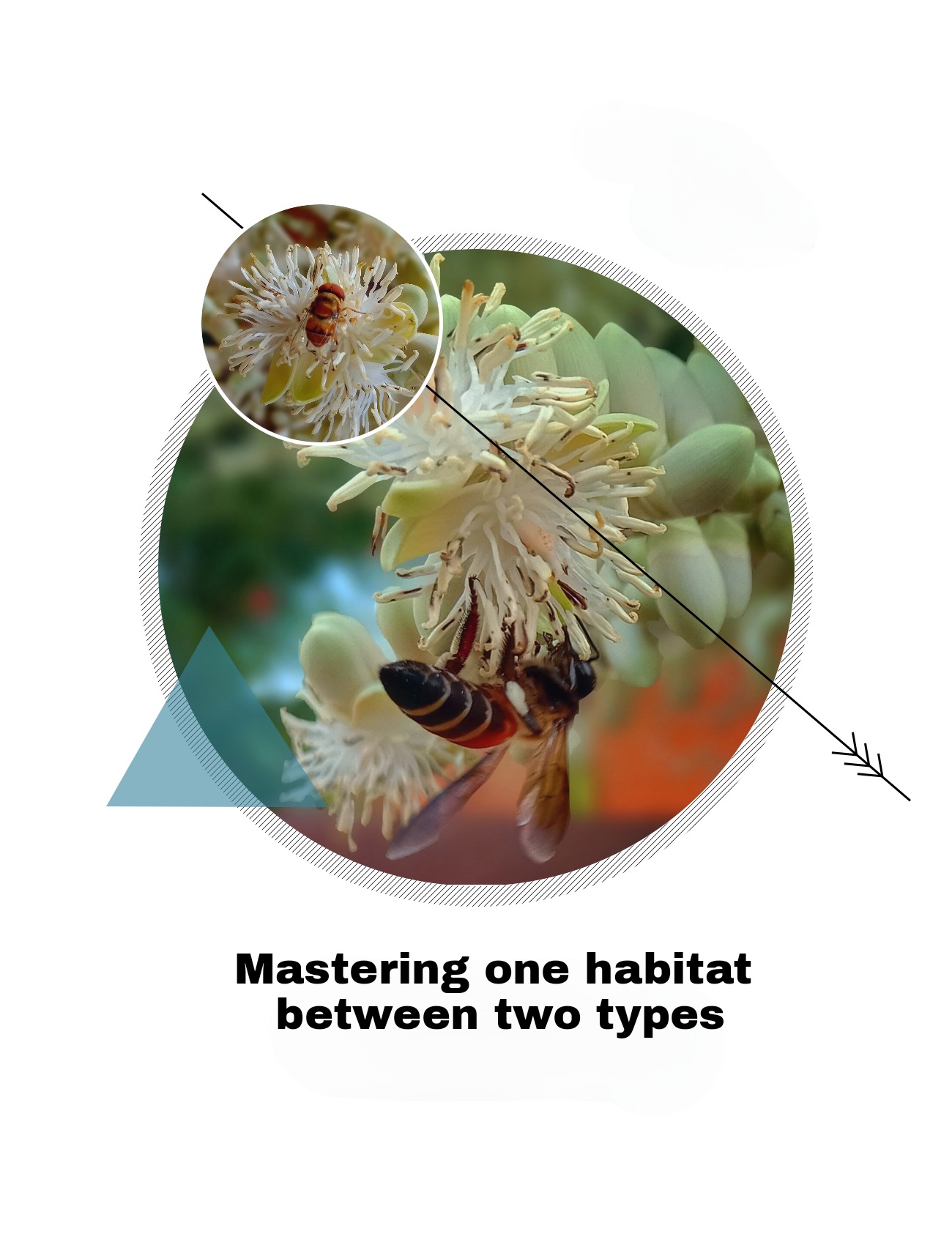
Visually or when looking at previous experiences in everyday life. Honey bees will continue to harass anyone who comes to join together to enjoy the pistil in the petals of the fruit, or the juice of a flower that is about to grow fruit. As you can see in this post, it looks like a bunch of ornamental betel nut plants have grown flowers that will become the forerunner of fruit. In general there will be insect species to suck every drop of sweet liquid. But the bee will show its power so that other species will move and go to another location.
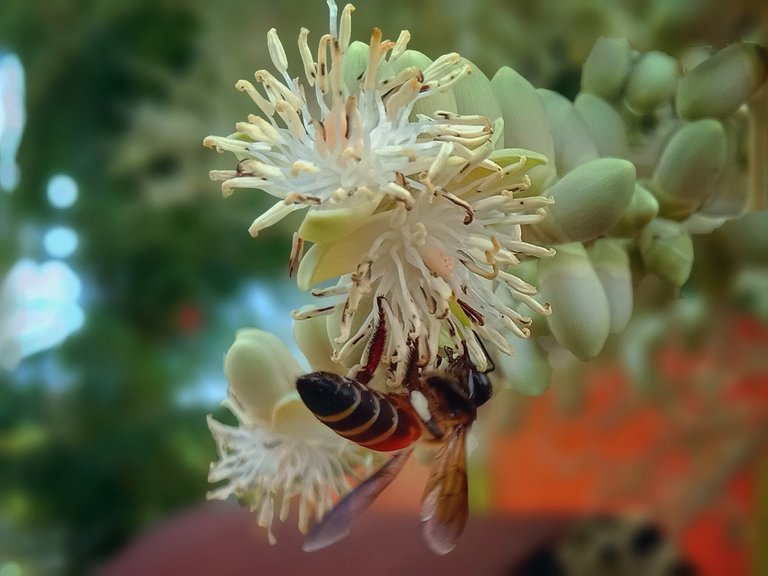
The activity of honey bees in one habitat or when they find flower/fruit juice, it is very clear to see their striking aggressiveness, the speed of their wings and body speed both in standing, moving, or in other activities, is very fast and precise. This is a visible advantage in a habitat (honey bees).
What's more unique is that the speed of the wings is very fast and the fun in this activity can make a distinctive sound or I myself heard something like "nguoeng..." the sound is a sign to order other species to move immediately. The distinctive buzzing sound is a warning and at the same time conveys to others that "this territory belongs to him".
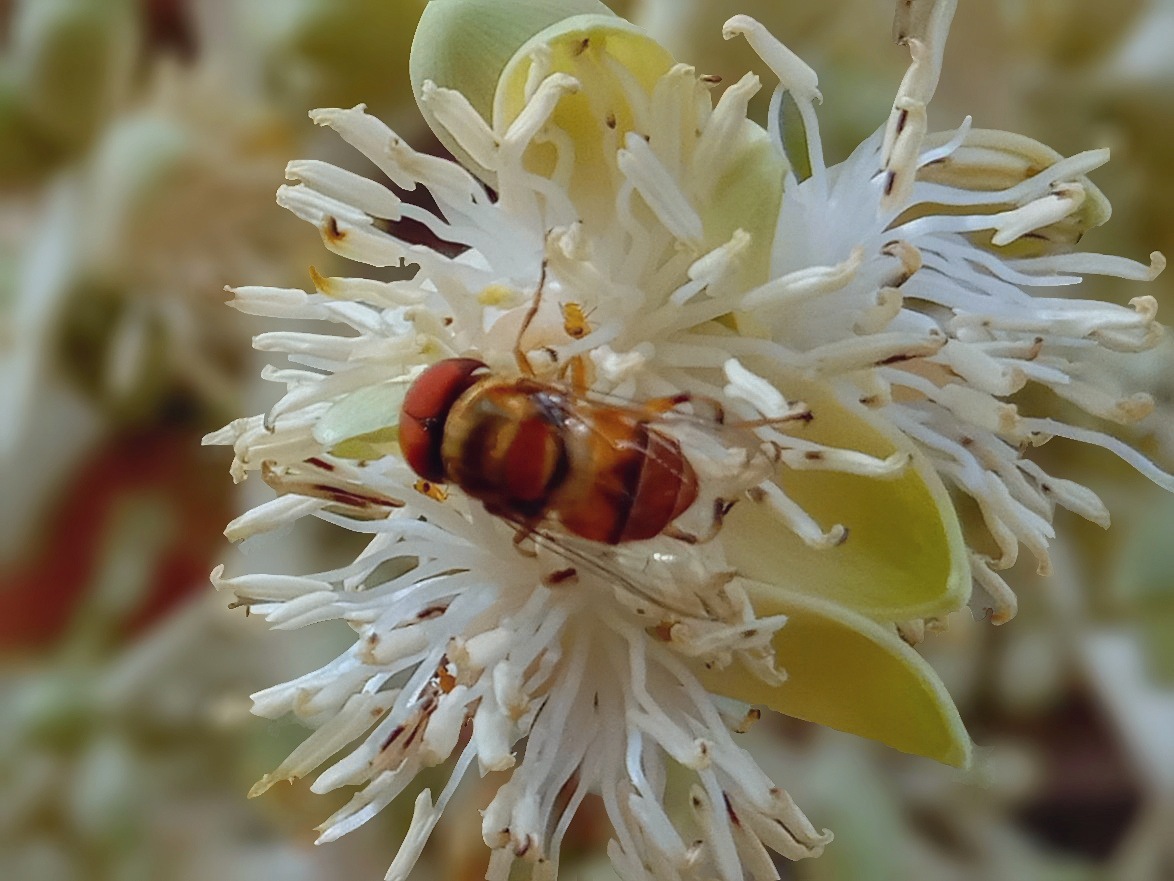
But not with Copestylum or in our language the fruit fly
Copestylum looks relaxed in the same habitat, namely in the honeybee area. He looks relaxed in sucking the pistil that comes from this betel nut flower. Although the honeybee occasionally tried to chase him away, he was not bothered and even continued to do activities like other honeybees. If you pay attention to the Copestylum, you don't see a lot, it's estimated that you only see a few, their numbers are very few when compared to the hundreds of honey bees doing their activities.
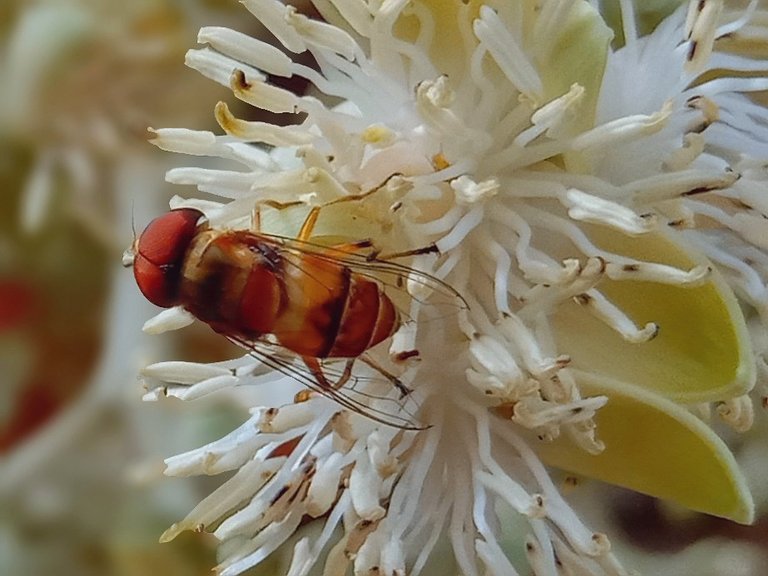
His characteristics at that time were different, not causing fear like other insects. However, he remains wary of the influence of honey bees. This can be seen in terms of vigilance when the bees want to drive them away. Even though the honeybee approached it at a very close distance, it did not move, only shifted its position, if at first their position turned their back on them but when they were close they faced each other.
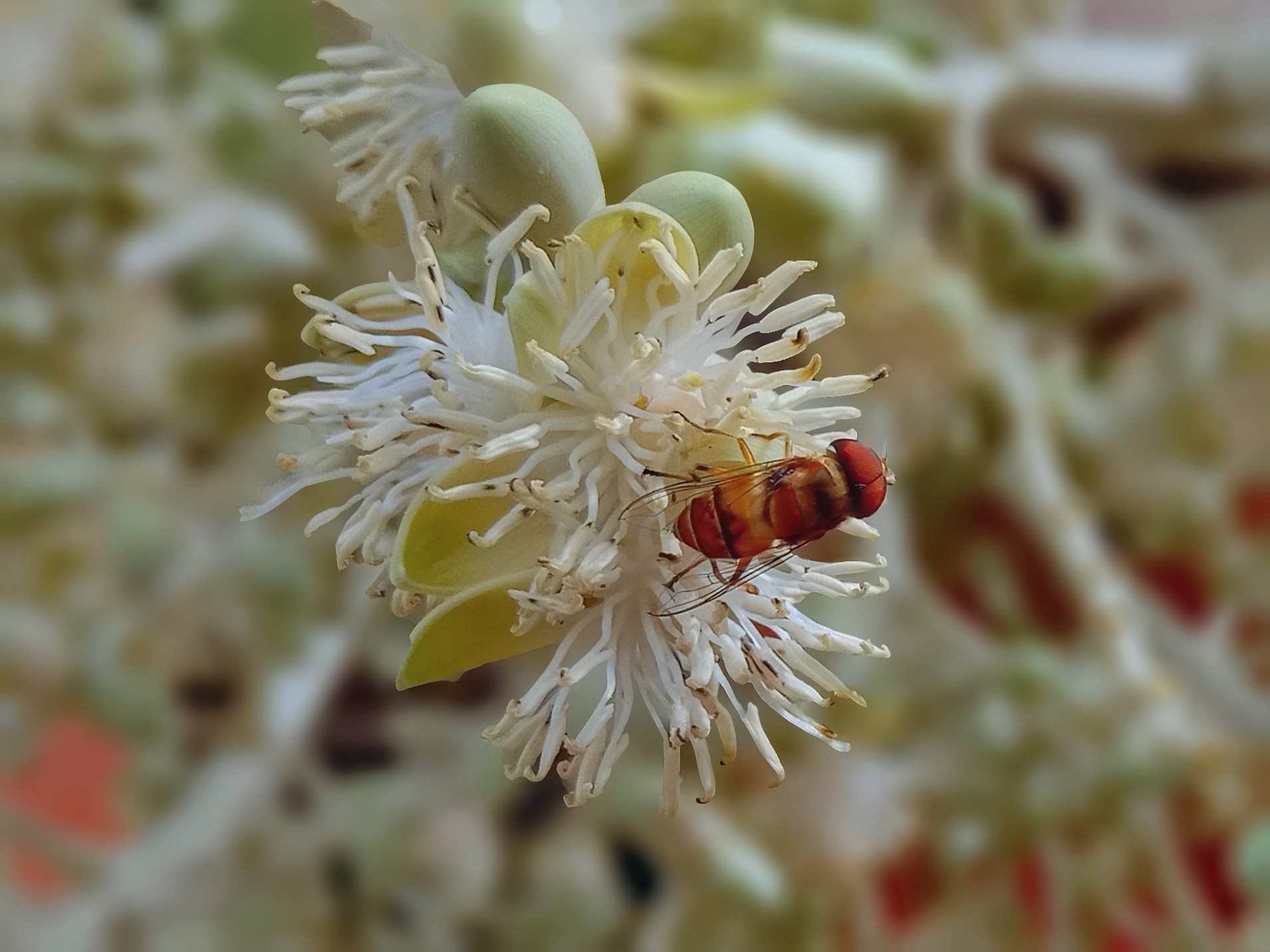
I personally saw it myself, and if we conclude with assumptions, it is strongly suspected that Copestylum is not afraid of the courage of bees, but I myself have not found the reason why they are so brave to join the bee colony habitat, judging from their appearance, their posture is not as weaponized as bees. They only have a pattern color that resembles the pattern on the bee's body itself, meaning that the pattern matches. Whether it's disguised or something else I don't know.
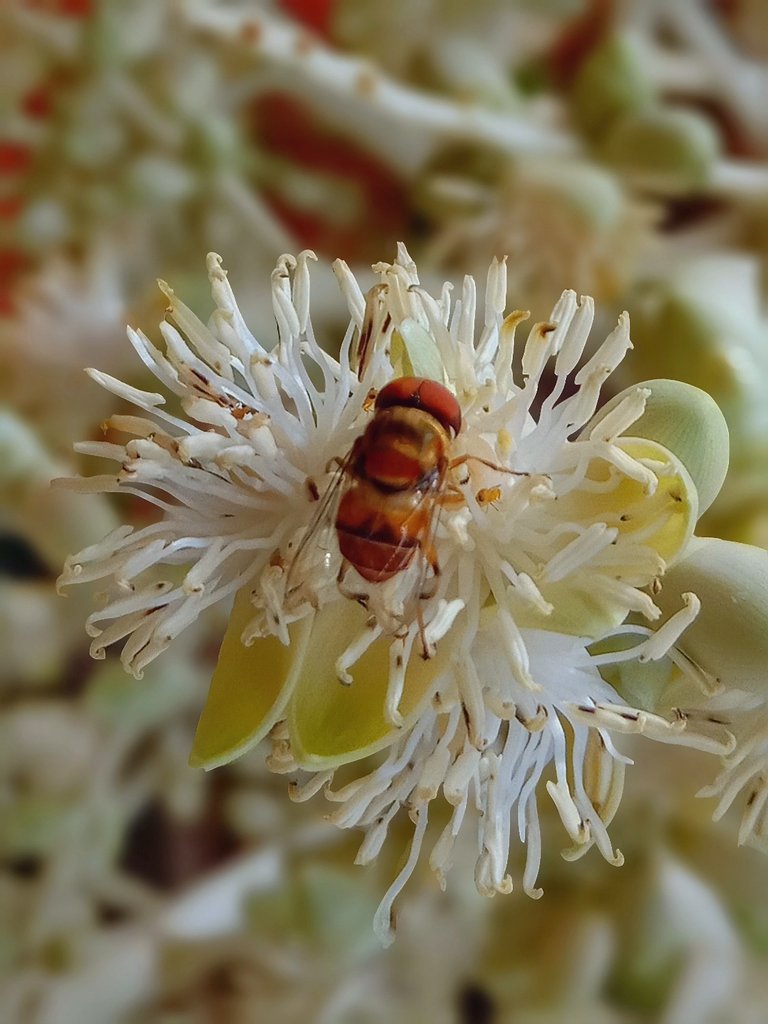
If the pattern and color of the body does not resemble that of a honey bee, or has a pattern or color that resembles the body of a fly, it is said to be a fly. However, what distinguishes the fly's posture is that it exceeds the size of the fly's body. While the character of flies is not found in this Copestylum. Meaning, this Copestylum doesn't seem to be playing in the trash or liking rotten meat, its likes or its food resembles bees, as you can see in this post.
To be sure or personally I don't know why he doesn't feel fear of honey bees in one habitat, although it is often seen that bees often repel intruders or often repel ruling species in other insect-dominated areas to control by bees.
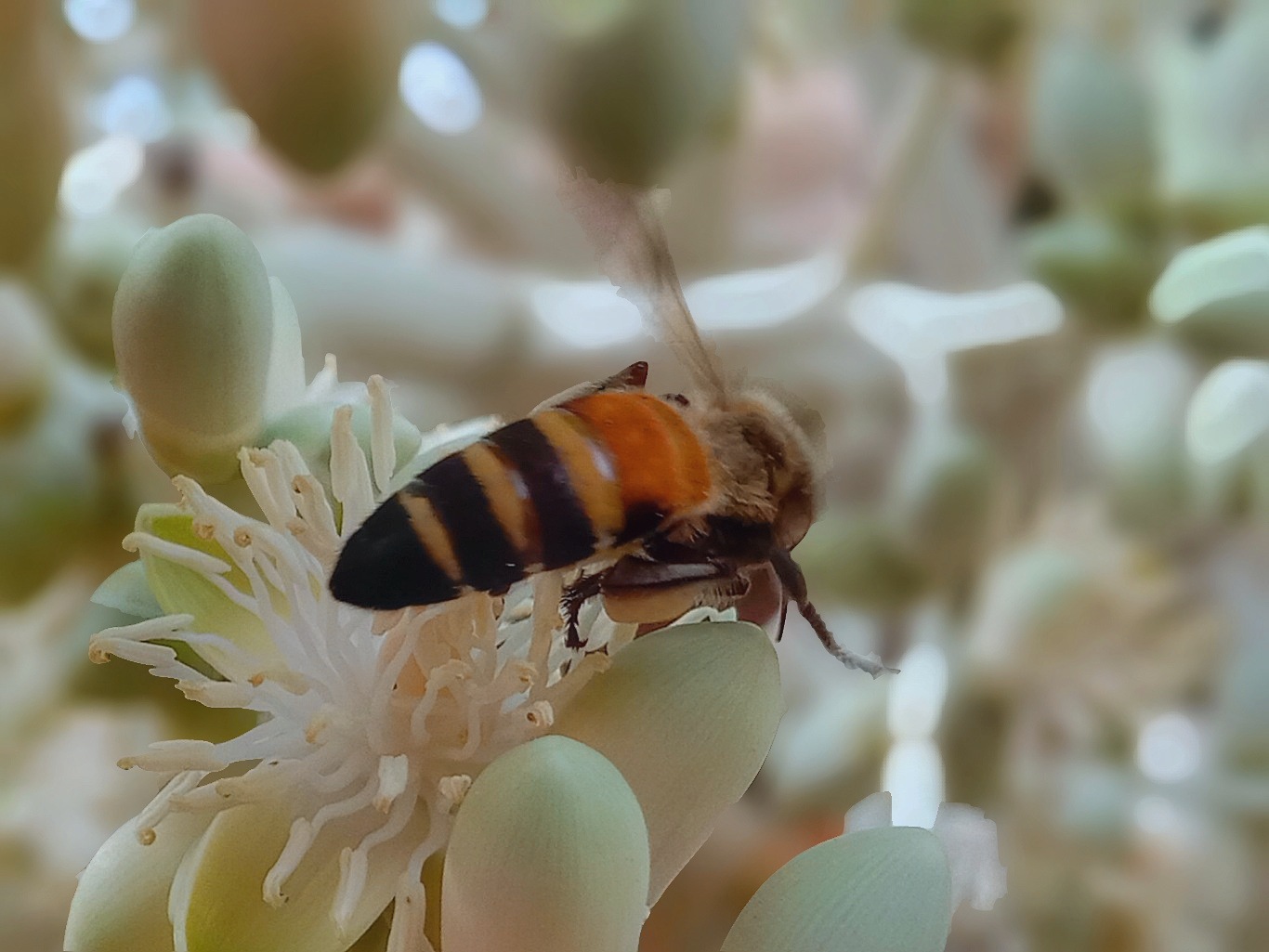
I saw the bee was very enthusiastic about mastering and enjoying every drop of the pistil that was in the flower. His very aggressive attitude made it very difficult for me to take a photo of him, personally when photographing an image object would perform an important ritual of pressing auto focus on the camera, but the speed of movement overwhelmed me.
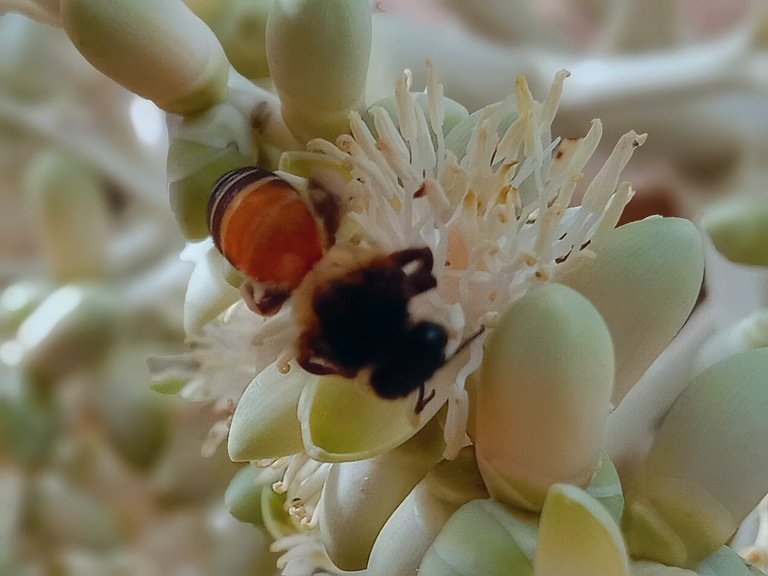
If it is silent for a while from its active movement, of course I will get a clear and bright result, but that is how the bee behaves when faced with a feed, it will never stay still from moving. The most sensitive thing is the wings that continue to rotate from every activity, maybe throughout the day the wings continue to rotate without stopping except when he is resting.
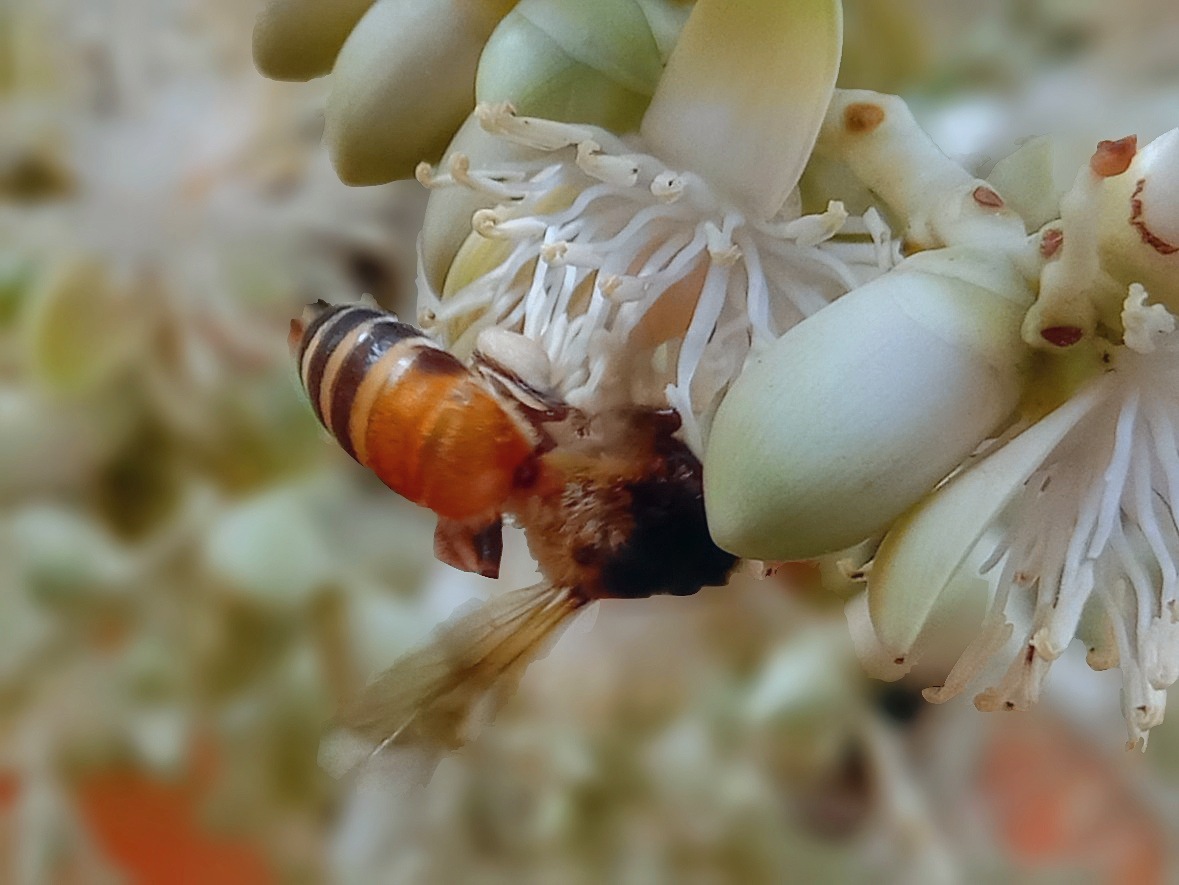
Activity after activity continues to be passed by this one bee, since I watched it within 2 hours, it continues to do these activities. Moreover, in the ornamental areca tree there is still a cool atmosphere so he continues to try to take advantage of the little time. Why? Because will soon sun be in the middle, so when the sun shines its hot light on the tree, the cold temperature will automatically turn into hot. So that's when the bee group and the Copestylum group, will move to look for a shady location.
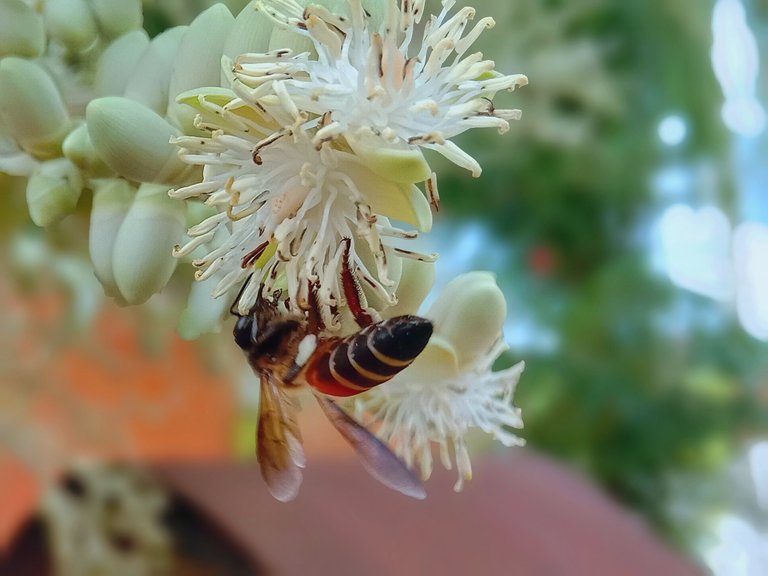
Without exception, all creatures will try to avoid the scorching heat of the hot sun, why? Because it can lead to dehydration which can be exhausting, so it's no wonder why each of them would take a break during the day, to protect their bodies from it.
Except for certain creatures that are able to adapt to the hot sun, even then it doesn't last long. In essence, the creature's activities take place in the morning, or evening, and sometimes at night, while at midday they rest in a shady location.
Two different types of insects even though the pattern looks the same, but not as we think, it turns out that they have other things that we have not seen, but when we try to be deeper or more specific, we see many different characteristics. Turns out it was in the creature. Our eyes will say otherwise or not according to our mindset.
Thank you to my friends and curators, who are always willing to read and help me upvote.
| Photo and Text Captions | ✎ & 📸 |
|---|---|
| 🅿🅾🆂🆃 | Mastering one habitat between two types |
| Location 💥 | Indonesia |
| 𝗪𝗿𝗶𝘁𝗶𝗻𝗴 | 𝕆𝕨𝕟 |

